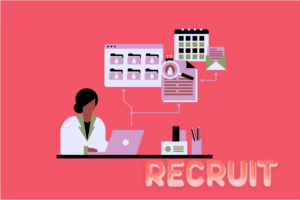Landing your first job is exciting, however, it’s not easy to navigate your career and grow faster. Starting your first job in right place and taking these steps to start your career on the right foot can help you set yourself up for a successful career. Before we help with those steps, here is the survival checklist that you need to know if you’re a fresh college graduate and starting up. If you need to talk to our expert and want to know how we can help, check this out.
Starting your first job can be exciting and overwhelming, but it’s also your chance to build a strong foundation for your career. To thrive, you need the right mindset, strategies, and action plan. Here’s how to make the most of this opportunity and set yourself up for long-term success:
1. Understand Your Role Thoroughly
Be proactive at the new job!
- Learn your job: Understand your responsibilities and expectations.
- Talk to your boss: Schedule a meeting early to clarify your role and goals.
- Observe and adapt: Learn from how others in the team approach their tasks, and find ways to deliver your best.
2. Adopt the Right Attitudes
Your mindset plays a very crucial role in your career growth.
- Be flexible and open-minded: Adjust quickly to the demands of professional life, which can be more challenging than college.
- Stay proactive: Be ready to take up new projects and go the extra mile.
- Stay positive: A can-do attitude will help you stand out as a dependable team member.
3. Build Effective Relationships
Network is your secret key to success!
- Develop strong connections with your team: These relationships can open doors to new opportunities.
- Participate actively: Attend team meetings, company events, and casual gatherings like coffee breaks or lunches.
- Foster goodwill: Be respectful, collaborative, and supportive to maintain a positive reputation.
4. Continuously Upskill and Evolve
No knowledge ever goes to waste! Learning new skills is your hand-boost to reaching professional excellence!
- Upskill regularly: Identify the skills that matter in your field and focus on improving them.
- Stay informed: Be curious and learn about industry trends, tools, and best practices.
- Seek feedback: Regularly ask for input on your performance to identify areas of improvement.

Key Steps to Accelerate Your Career Growth
Step 1: Identify Your Career Goals and Map Your Journey
Plan your path:
- Treat your first job as a stepping stone to your long-term goals.
- Research career growth opportunities within your field and organization.
- Find role models in your industry, study their journeys, and chart your course for growth.
Step 2: Get to Know Your Team
Fit in and thrive:
- Building rapport with your colleagues is essential for a supportive work environment.
- Participate in team activities, contribute actively in meetings, and make an effort to bond with your peers.
Step 3: Expand Your Skill Set
Challenge yourself:
- Perform a SWOT analysis (Strengths, Weaknesses, Opportunities, Threats) to identify your areas of improvement.
- Create a development plan to acquire new skills, even those outside your immediate comfort zone.
Step 4: Find the Right Mentor
Mentorship accelerates growth:
- Look for a mentor who can guide you, offer feedback, and help you navigate challenges.
- If you can’t find one in your company, connect with experts at SkillPad to access mentorship tailored to your goals.
Step 5: Understand the Company’s Hierarchy
Learn the bigger picture:
- Talk to HR to understand the leadership structure and career pathways.
- Study the organization chart to identify opportunities for growth and set realistic goals for advancement.
Develop Your Professional Brand
Track your progress:
- Document milestones: Keep a record of your achievements, key learnings, and contributions.
- Build your narrative: Use these accomplishments to craft a compelling story for future opportunities.
- Showcase your growth: Regularly update your professional profiles (LinkedIn, resume) with your latest skills and achievements.
Conclusion
Your first job is more than just a paycheck—it’s a launching pad for your career. By adopting the right mindset, building strong relationships, and staying committed to self-improvement, you’ll not only excel in your current role but also set the stage for long-term success.











